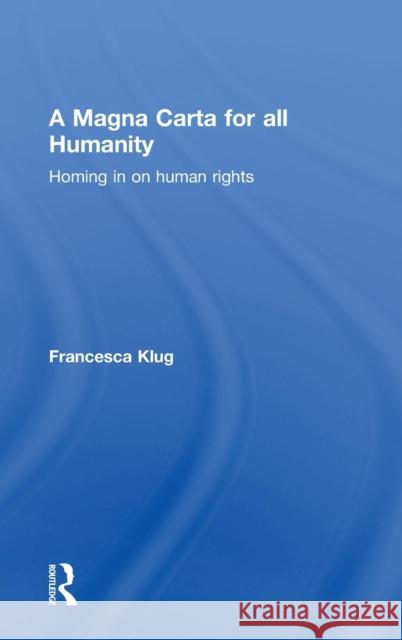A Magna Carta for all Humanity: Homing in on Human Rights » książka
A Magna Carta for all Humanity: Homing in on Human Rights
ISBN-13: 9780415423731 / Angielski / Twarda / 2015 / 300 str.
A Magna Carta for all Humanity: Homing in on Human Rights
ISBN-13: 9780415423731 / Angielski / Twarda / 2015 / 300 str.
(netto: 734,78 VAT: 5%)
Najniższa cena z 30 dni: 654,86
ok. 16-18 dni roboczych.
Darmowa dostawa!
The Magna Carta, sealed in 1215, has come to stand for the rule of law, curbs on executive power and the freedom to enjoy basic liberties. When the Universal Declaration of Human Rights was adopted by the United Nations in 1948, it was heralded as 'a Magna Carta for all human kind'. Yet in the year in which this medieval Charter's 800th anniversary is widely celebrated, the future of the UK's commitment to international human rights standards is in doubt. Are 'universal values' commendable as a benchmark by which to judge the rest of the world, but unacceptable when applied 'at home'? Francesca Klug takes us on a journey through time, exploring such topics as 'British values, ' 'natural rights, ' 'enlightenment values' and 'legal rights, ' to convey what is both distinctive and challenging about the ethic and practice of universal human rights. It is only through this prism, she argues, that the current debate on human rights protection in the UK can be understood. This book will be of interest to students of British Politics, Law, Human Rights and International Relations.
In this new edition of the highly successful volume Francesca Klug explains the nature of human rights discourse through an exploration of its evolution over the last two hundred years. By tracing the popular appeal of human rights over time, she describes and explains how the idea of fundamental human rights has changed and developed through three distinct ‘waves’ characterized by different, but overlapping, sets of values.
It examines how protecting human rights has become part of the justification for suspending laws designed to uphold them and how the legitimacy of human rights values is openly challenged by wildly different forces, ranging from religious fundamentalists to liberal governments, who maintain that an over-emphasis on rights leaves states vulnerable to attack by terrorists and propagandists who take advantage of liberal laws.
Providing an accessible analysis of human rights discourse, this significant volume will be of interest to students, researchers, activists and all those interested in human rights.











